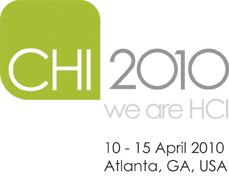CN17: Beyond Anecdotes: Analyzing and Interpreting Qualitative Data from Field Studies
Quick Facts
Time: Wednesday, 14 April 2010, 9:00 to 18:00Units: 4
Organizers: David A. Siegel
Benefits
Field studies are essential to user-centered design, but the data from these studies can be overwhelming and ambiguous. As a result, conclusions are all too often impressionistic or anecdotal, with vague or even misleading implications for design. In today’s economy more than ever we need to go beyond this, to show the value of field research. This course will teach you techniques for analysis to improve the credibility and validity of your findings, to keep them focused on design, and to help you avoid drowning in your data.Audience
This tutorial is intended for practitioners who want to improve the validity and credibility of their field user research. Ideally, participants will have some experience in field research including ethnography, contextual inquiry, or naturalistic usability, with a practical focus on any aspect of product definition and design. However, it also will be of interest to people who have a background in more structured forms of user research, such as lab usability, who want to prepare for the less structured world of field research. However, the course does not focus on data gathering in field research, and assumes a basic knowledge of these techniques.Origins
This course is updated from a tutorial that has been presented successfully at CHI and many other international conferences.Features
- Why we need a more disciplined approach to analyzing field research data
- What "scientific rigor" means in relation to qualitative data
- How to archive data to maintain the link between data and conclusions, and to facilitate analysis; and how software tools can help in this process
- How to triangulate in on valid conclusions through iterative use of complementary analysis techniques, including coding strategies, clustering and affinity diagramming, extracting dimensions, and exploring networks of relations
- How field research findings can drive concrete decisions in strategic planning and design of products
- How to deal with common validity concerns regarding interpretation of qualitative field study data, such as the small sample problem, “outliers,” and appropriate generalization from qualitative data
- Tips and tricks for managing organizational issues in communicating field research findings



